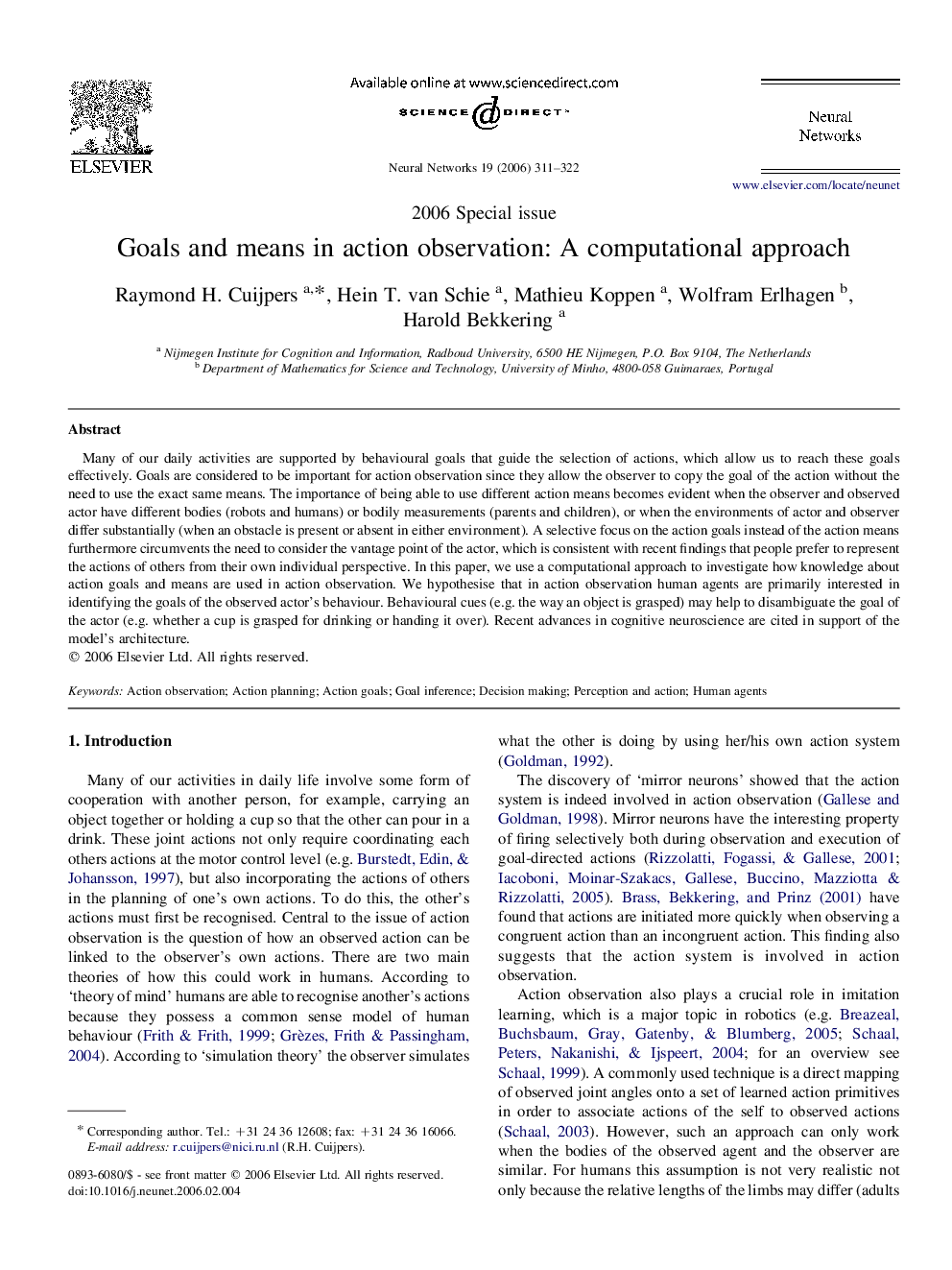| Article ID | Journal | Published Year | Pages | File Type |
|---|---|---|---|---|
| 404806 | Neural Networks | 2006 | 12 Pages |
Many of our daily activities are supported by behavioural goals that guide the selection of actions, which allow us to reach these goals effectively. Goals are considered to be important for action observation since they allow the observer to copy the goal of the action without the need to use the exact same means. The importance of being able to use different action means becomes evident when the observer and observed actor have different bodies (robots and humans) or bodily measurements (parents and children), or when the environments of actor and observer differ substantially (when an obstacle is present or absent in either environment). A selective focus on the action goals instead of the action means furthermore circumvents the need to consider the vantage point of the actor, which is consistent with recent findings that people prefer to represent the actions of others from their own individual perspective. In this paper, we use a computational approach to investigate how knowledge about action goals and means are used in action observation. We hypothesise that in action observation human agents are primarily interested in identifying the goals of the observed actor's behaviour. Behavioural cues (e.g. the way an object is grasped) may help to disambiguate the goal of the actor (e.g. whether a cup is grasped for drinking or handing it over). Recent advances in cognitive neuroscience are cited in support of the model's architecture.
